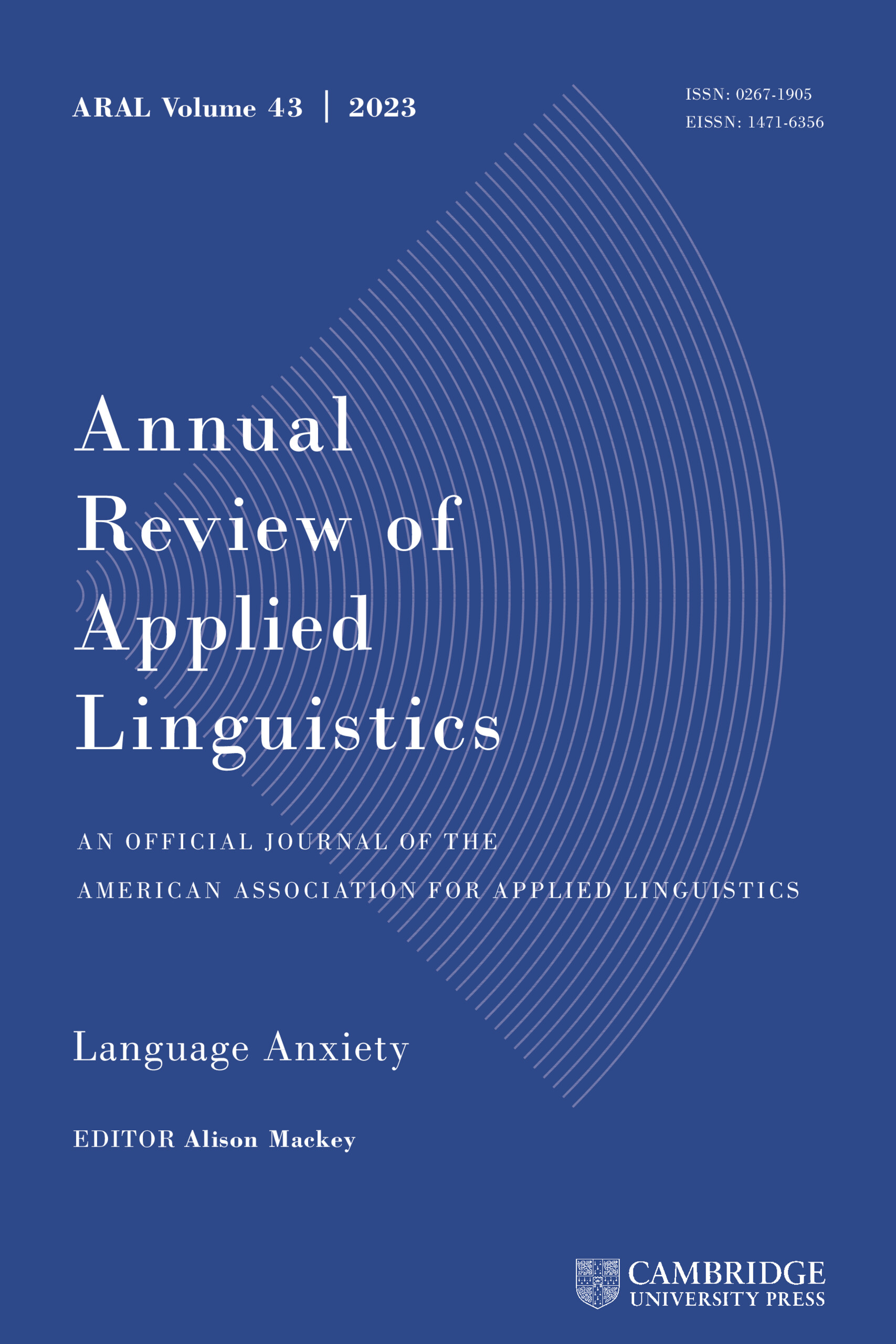Crossref Citations
This article has been cited by the following publications. This list is generated based on data provided by
Crossref.
Byrnes, Heidi
2002.
The Cultural Turn in Foreign Language Departments: Challenge and Opportunity.
Profession,
Vol. 2002,
Issue. 1,
p.
114.
Kaplan, Robert B
and
Grabe, William
2002.
A modern history of written discourse analysis.
Journal of Second Language Writing,
Vol. 11,
Issue. 3,
p.
191.
Martin, Jim R.
2003.
Critical Discourse Analysis.
p.
199.
Martin, Jim R.
2003.
Critical Discourse Analysis.
p.
199.
Coffin, Caroline
2004.
Arguing about how the world is or how the world should be: the role of argument in IELTS tests.
Journal of English for Academic Purposes,
Vol. 3,
Issue. 3,
p.
229.
Coffin, Caroline
2004.
Learning to Write History.
Written Communication,
Vol. 21,
Issue. 3,
p.
261.
Rajagopalan, Kanavillil
2004.
The Handbook of Applied Linguistics.
p.
397.
ORTEGA, LOURDES
2005.
For What and for Whom Is Our Research? The Ethical as Transformative Lens in Instructed SLA.
The Modern Language Journal,
Vol. 89,
Issue. 3,
p.
427.
BYRNES, HEIDI
2005.
Perspectives.
The Modern Language Journal,
Vol. 89,
Issue. 2,
p.
248.
Coffin, Caroline
and
Hewings, Ann
2005.
Language, learning and electronic communications media.
International Journal of Educational Research,
Vol. 43,
Issue. 7-8,
p.
427.
2006.
References.
Language Learning,
Vol. 56,
Issue. S2,
p.
257.
Coffin, Caroline
2006.
Learning the language of school history: the role of linguistics in mapping the writing demands of the secondary school curriculum.
Journal of Curriculum Studies,
Vol. 38,
Issue. 4,
p.
413.
Prain, Vaughan
2006.
Learning from Writing in Secondary Science: Some theoretical and practical implications.
International Journal of Science Education,
Vol. 28,
Issue. 2-3,
p.
179.
MARTIN, JAMES R.
2007.
Comment.
World Englishes,
Vol. 26,
Issue. 1,
p.
84.
Freebody, Peter
Maton, Karl
and
Martin, J. R.
2008.
Talk, text, and knowledge in cumulative, integrated learning: A response to ‘intellectual challenge’.
The Australian Journal of Language and Literacy,
Vol. 31,
Issue. 2,
p.
188.
Bruce, Ian
2009.
Results sections in sociology and organic chemistry articles: A genre analysis.
English for Specific Purposes,
Vol. 28,
Issue. 2,
p.
105.
de Freitas, Elizabeth
and
Zolkower, Betina
2009.
Using social semiotics to prepare mathematics teachers to teach for social justice.
Journal of Mathematics Teacher Education,
Vol. 12,
Issue. 3,
p.
187.
Prain, Vaughan
2009.
Quality Research in Literacy and Science Education.
p.
151.
Bonfim, João Bosco Bezerra
2010.
O desafio nos cordéis: lutar com as palavras não é luta vã.
Estudos de Literatura Brasileira Contemporânea,
p.
153.
Bruce, Ian
2010.
Genres on the Web.
Vol. 42,
Issue. ,
p.
323.


